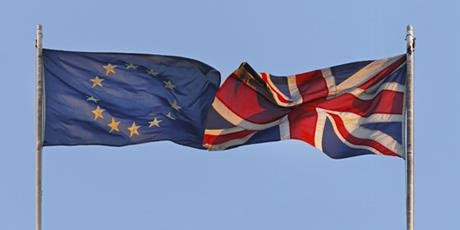 Credit: Parliament UK
Credit: Parliament UK
Luxembourg's Ministry of Foreign and European Affairs has announced that, following the conclusion of negotiations on a trade and cooperation agreement between the European Union and the United Kingdom, the procedures relating to the signing, provisional application and conclusion of the three texts of the agreement are currently in progress.
The agreement between the EU and the UK will protect the interests of European citizens as well as those of businesses established in the Union and allow further cooperation in areas of mutual interest.
Given the exceptional circumstances, provisional application of the three texts of the agreement is planned from 1 January 2021.
While the Withdrawal Agreement had already ratified the United Kingdom's departure from the European Union and notably safeguarded the rights of citizens on both sides of the channel, the agreement on future relations primarily settles trade-related issues, goods and services, as well as the principles governing the concept of fair competition.
However, from 1 January 2021, the EU internal market and the UK market will be two separate regulatory spaces. Trade in goods will not be subject to customs duties or quotas, but there will be regulatory controls (rules of origin, technical, sanitary and phytosanitary standards) at the EU's external borders. Exporters, importers and transporters are urged to take note of these new modalities and adapt their procedures accordingly. Trade in services will also be impacted, with new limitations that will differ from sector to sector.
The movement of people between the EU and the United Kingdom will also be affected from 1 January 2021. The rules on the free movement of people no longer apply, the rules applicable to short trips as well as the conditions for acquiring a right of residence will henceforth derive from the national legislation of both parties. However, the rights of the beneficiaries of the withdrawal agreement, i.e. in particular British nationals established in a Member State of the Union before 1 January 2021, as well aa citizens of the EU resident in the United Kingdom before this date, are preserved after tomorrow, 31 December 2020.
Also, the UK will be considered a third country when it comes to temporary restrictions on non-essential travel to the EU as part of the fight against the COVID-19 pandemic. As it stands, the UK will not be on the list of third countries that are exempt from temporary restrictions on non-essential travel to the EU. Thus, third country nationals having their residence in the United Kingdom, including British nationals not falling under the provisions of the Withdrawal Agreement, will be subject to temporary restrictions with regard to entry into the territory of the Grand Duchy of Luxembourg from 1 January 2021.
Specific measures have also been put in place for passengers returning from the United Kingdom following the lifting of the temporary suspension of scheduled passenger flights on 23 December 2020. These specific measures, as long as they are applicable, add to the rules established in the context of temporary restrictions on non-essential travel to the EU and apply to all travelers arriving from the UK on a scheduled passenger flight, regardless of the nationality of those affected.
The agreement also establishes ambitious police and judicial cooperation with the United Kingdom, in accordance with the European Convention on Human Rights and high standards for the protection of personal data.
In terms of studies, the modalities of access to universities should not change for EU27 students during their current courses. However, changes for future students have been announced. Students are therefore encouraged to obtain information from the competent authorities and establishments in the United Kingdom. In addition, it is reported that in the future the UK will no longer participate in the Erasmus+ programme.
In telecommunications, from 1 January 2021, providers of communications services (voice calls, SMS and data) operating in the European Union will be entitled to charge fees, including roaming charges, to their subscribers traveling in the United Kingdom. Suppliers will nevertheless remain free to continue to apply current tariffs to their customers.








